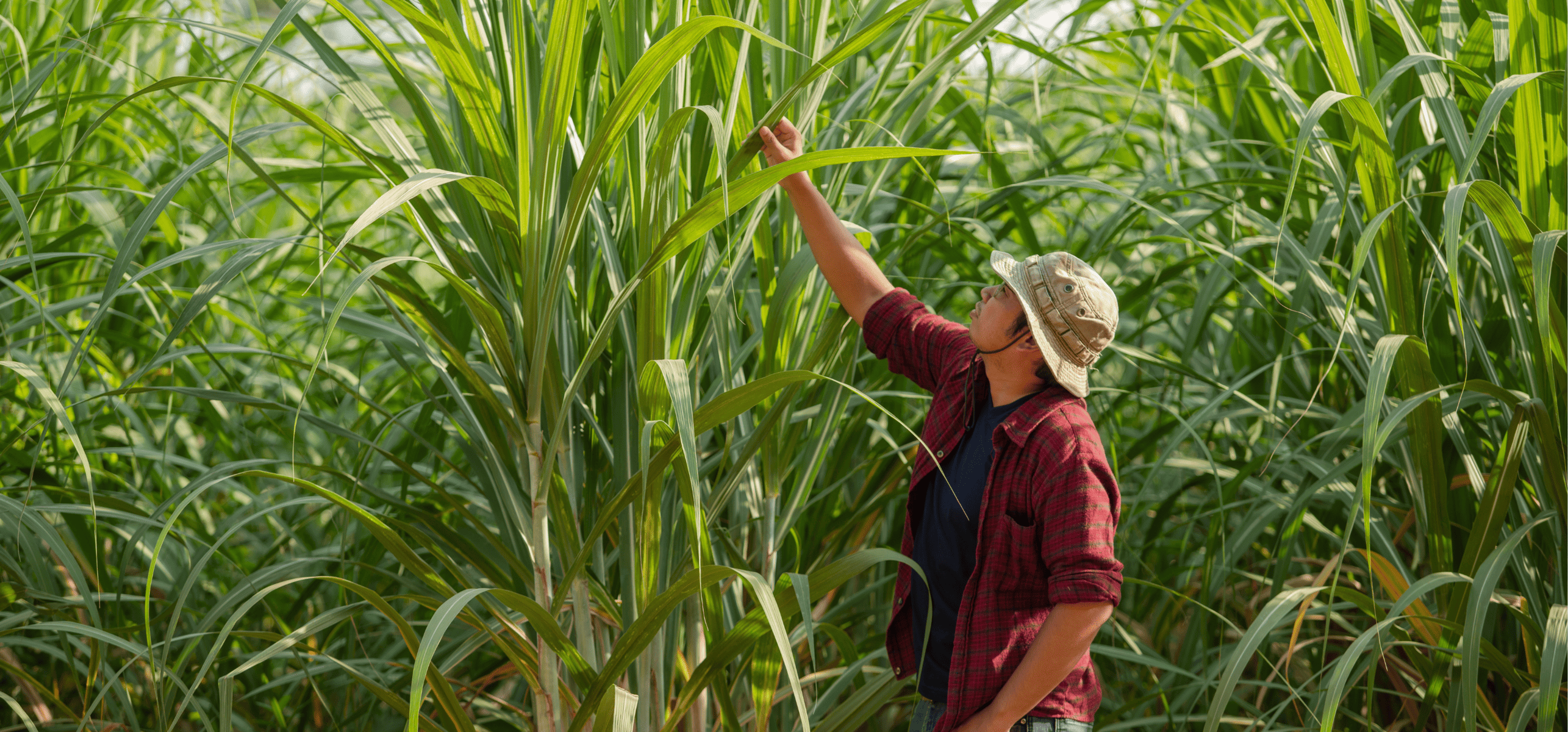Understanding the Manufacturing of Sugarcane Product for Buyers
Understanding the Manufacturing of Sugarcane Product for Buyers
Blog Article
Discovering Sugarcane Products: Versatile Profits and makes use of
The expedition of sugarcane products reveals an exceptional range of applications that prolong well beyond the familiar realm of sweeteners. As we check out the diverse contributions of sugarcane, one might wonder how these varied usages can reshape sectors and lifestyles in a quickly developing world.
Introduction of Sugarcane
Although sugarcane is frequently associated largely with sugar production, it is a functional plant with a rich history and various applications. Cultivated in subtropical and tropical areas, sugarcane grows in well-drained dirts and warm climates, contributing substantially to many economic situations worldwide. This perennial yard, belonging to the genus Saccharum, can expand to elevations of up to 4 meters, showcasing its robust nature.
Past its key function in sugar extraction, sugarcane functions as an important source for various by-products. The fibrous residue, understood as bagasse, is made use of for producing bioenergy and as a resources for producing paper and eco-friendly products. Furthermore, molasses, a by-product of sugar refining, is abundant in nutrients and frequently made use of in animal feed and fermentation processes.
Sugarcane likewise plays a substantial function in conventional medications and cultural techniques in numerous areas, highlighting its relevance past industrial use (sugarcane product). Furthermore, with the enhancing focus on sustainable agricultural practices, sugarcane is being discovered for its possibility in biofuels and carbon capture, placing it as a principal in the shift towards renewable resource resources. Thus, the flexibility of sugarcane prolongs far beyond the confines of sugar production
Sugarcane in Food Products
%20(1).png?width=555&name=Untitled%20design%20(3)%20(1).png)

Beyond sugar, sugarcane is the source of energy-rich products such as jaggery and panela, which are typical raw sugars made use of in several societies. These products not just sweeten foods yet also impart one-of-a-kind flavors and nutritional benefits.
Sugarcane juice, a rejuvenating drink appreciated in many tropical areas, showcases the plant's versatility. It is typically taken in fermented or fresh right into alcohols like rum.
In addition, sugarcane fibers, known as bagasse, are in some cases made use of to produce food product packaging products, stressing the eco-friendly benefits of sugarcane handling. Overall, sugarcane's contribution to food is diverse, improving tastes, offering nutritional worth, and playing a substantial duty in cooking practices around the globe.
Industrial Applications of Sugarcane
In various markets, the versatility of sugarcane extends much beyond its culinary applications. Sugarcane serves as an essential basic material in the production of biofuels, especially ethanol, which is significantly made use of as redirected here an eco-friendly energy source. This biofuel is derived via fermentation and distillation procedures, providing a sustainable alternative to nonrenewable fuel sources and contributing to a reduction in greenhouse gas discharges.

Moreover, the sugarcane market has found applications in pharmaceuticals, where its components are utilized in the formula of numerous medicinal products. The natural compounds extracted from sugarcane exhibit antioxidant and antimicrobial residential properties, improving the effectiveness of certain drugs.
Finally, sugarcane is indispensable to the manufacturing of a series of chemicals, consisting of glycerol and organic acids, which are crucial for numerous commercial processes. These applications highlight sugarcane's substantial role in advertising industrial sustainability and advancement.
Environmental Advantages of Sugarcane
The diverse applications of sugarcane not only boost commercial processes but also contribute dramatically to environmental sustainability. As a renewable energy, sugarcane growing plays an important duty in carbon sequestration, absorbing significant quantities of co2 from the environment. This process helps alleviate climate change by reducing greenhouse gas concentrations.
Additionally, sugarcane by-products, such as bagasse and molasses, supply environmentally friendly options to traditional products. check my reference Bagasse, the fibrous deposit after juice extraction, can be utilized as a biomass gas, minimizing dependence on fossil fuels and advertising cleaner energy resources. Furthermore, molasses can be changed into bioethanol, even more sustaining sustainable energy campaigns.
Sugarcane farming additionally advertises biodiversity and dirt health and wellness. Lasting agricultural practices, such as intercropping and crop turning, boost soil fertility and lower erosion. Furthermore, the crop's deep root system help in water retention, consequently sustaining neighborhood ecological communities and improving strength versus drought.
Health Advantages of Sugarcane
Rich in natural sugars and important nutrients, sugarcane uses numerous health benefits that make it an important addition to a well balanced diet. Its high fiber content aids in digestion, promoting gut health and avoiding constipation. Furthermore, sugarcane gives anti-oxidants, which combat oxidative anxiety and may reduce the danger of persistent conditions.
In addition, sugarcane juice is recognized for its hydrating residential or commercial properties, making it an excellent drink option, specifically in warm environments. The natural sugars existing in sugarcane give a quick power boost, advantageous for great post to read athletes and those participated in exercises. It additionally includes essential vitamins and minerals, such as vitamin C, magnesium, potassium, and calcium, which add to general health.
Researches suggest that sugarcane might aid manage blood glucose degrees, making it a preferable sugar for people with diabetes when eaten in small amounts. Furthermore, its anti-inflammatory residential properties can sustain liver health and wellness and help in detoxification.
Final Thought
In verdict, sugarcane arises as a highly versatile crop with considerable payments to various fields. The spin-offs of sugarcane, such as bagasse and molasses, promote green methods, while its health and wellness advantages boost general well-being.
Although sugarcane is frequently associated mainly with sugar manufacturing, it is a flexible crop with a rich history and many applications.Past its key function in sugar removal, sugarcane serves as an essential resource for different byproducts. Mainly understood for producing sugar, sugarcane is changed right into granulated sugar, brownish sugar, and molasses, each offering distinctive cooking functions.Rich in natural sugars and important nutrients, sugarcane provides many wellness advantages that make it a useful addition to a well balanced diet plan. The all-natural sugars existing in sugarcane supply a quick power boost, helpful for athletes and those involved in physical tasks.
Report this page